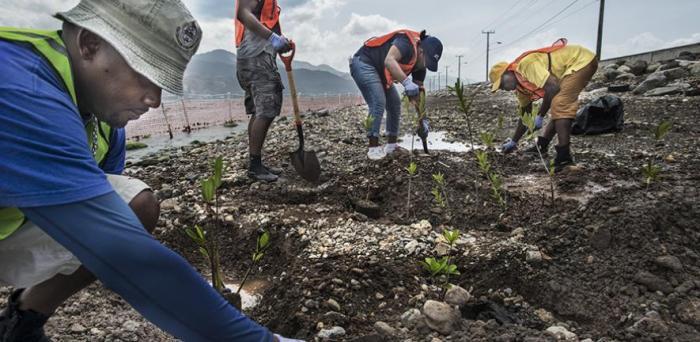To create a globally net zero, climate-resilient world by 2050, there are two things we need to know: what solutions are feasible, and what is desirable. The COP26 Futures We Want project brings these things together.
Six groups of academic experts collated existing research and evidence on relevant risks, mitigation, adaptation and resilience solutions within the context of their region. Then, based on this evidence, six groups of citizens came together to share their hopes and ideas for the future. This gives us something new: visions of a globally net zero, climate-resilient world that people actually want to live in.
The COP26 Futures We Want project is releasing its findings to coincide with the international climate summit in Glasgow. The project was commissioned by UK Government in their role as COP26 President and has been coordinated by Cambridge Zero, the University of Cambridge’s climate initiative.
This collaboration involved communities from the UK, Jamaica, Brazil, Kenya, United Arab Emirates, Saudi Arabia, and India, and explored diverse views and solutions to address the real impacts of climate change, such as electricity generation, agriculture, waste and water management, building design, reforestation and ocean conservation.
“Work which addresses the global emergency of climate change at the regional level, and brings together academic and community perspectives, is a crucial part of building a climate-resilient world,” said Emily Marchant, Cambridge Open Engage Programme Manager, Cambridge University Press.
Dr Emily Shuckburgh, director of Cambridge Zero, and chair of the project’s International Expert Committee said: “COP26 can be the start of building a new, positive future if there is sufficient ambition. Partners and collaborators from around the world helped us to put citizens and evidence at the heart of informing policy.
“Together, we visualised a set of possible desirable futures by identifying many of the challenges and solutions that must be addressed to achieve a global zero-carbon future that is just and beneficial for all.”
The final visions can be found on www.FuturesWeWant.world
Image: Mangroves from the nursery at the University of the West Indies at Port Royal are being planted at the bay opposite Kingston.
Credit: United Nations Environment Programme
Reproduced courtesy of the University of Cambridge
